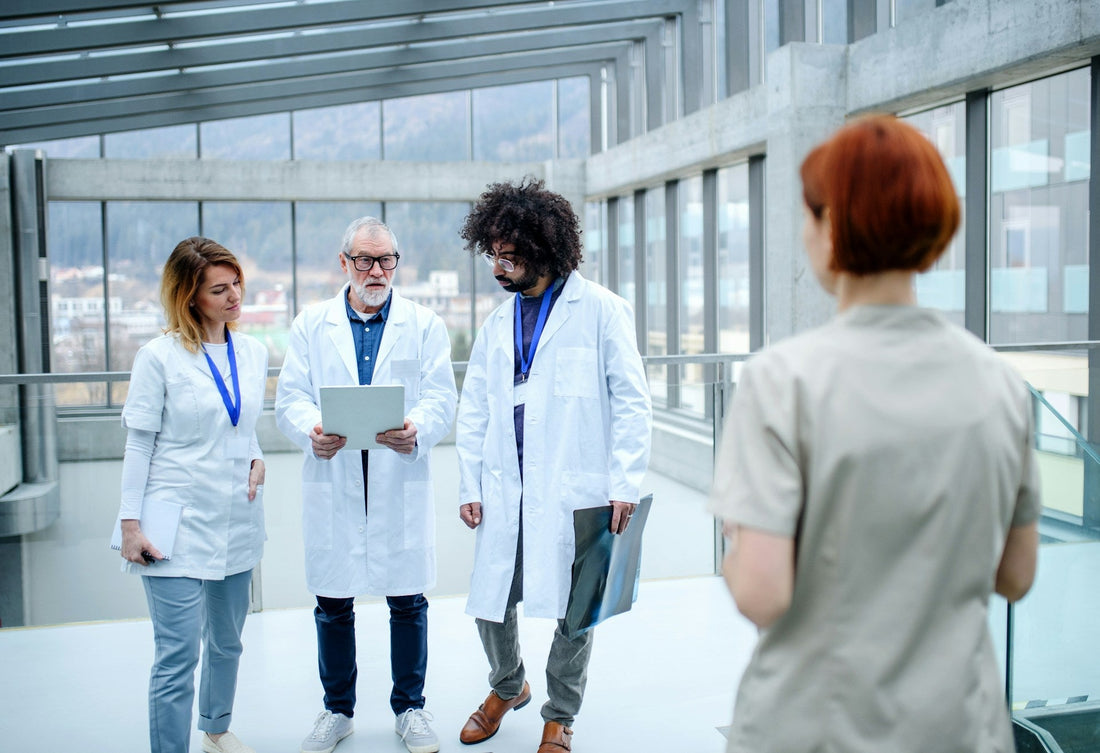
What to Take for Internal Hemorrhoids Pain: Effective Remedies and Relief Options
Share
Experiencing pain and discomfort from internal hemorrhoids can be frustrating and distressing. To effectively manage this pain, consider using a combination of lifestyle changes, topical treatments, and natural supplements that specifically target hemorrhoid symptoms. These approaches can help alleviate the discomfort while addressing the root causes of your condition.
One effective option to consider is Hem Healer, a 100% natural blend of botanical herbs designed to reduce pain, swelling, and bleeding associated with hemorrhoids. This supplement is formulated to support both men and women, enhancing your overall comfort and helping you regain control over your daily activities.
In addition to supplements, incorporating dietary changes, such as increased fiber intake, can significantly improve your symptoms. Remember that addressing internal hemorrhoids effectively requires a comprehensive strategy, and understanding your options is the first step toward relief.
Understanding Hemorrhoids
Recognizing the nature of hemorrhoids is essential in managing pain effectively. This section explores the causes, identification, and potential complications related to internal hemorrhoids, providing you with the knowledge needed to address this condition.
Causes and Types
Hemorrhoids occur when blood vessels in the rectum or anal area swell due to increased pressure. This can be caused by aging, chronic constipation, pregnancy, and straining during bowel movements.
There are two main types of hemorrhoids: internal and external. Internal hemorrhoids develop inside the rectum and usually aren't visible. They can prolapse, meaning they extend outside the anal opening, causing discomfort. External hemorrhoids form under the skin around the anal area and can be painful if they develop a blood clot. Both types can lead to complications if left untreated.
Identifying Internal Hemorrhoids
Identifying internal hemorrhoids can be challenging since they typically do not cause pain unless they prolapse. A healthcare provider may use an anoscope for examination. Key signs include rectal bleeding, which may be visible on toilet paper or in the stool.
Other symptoms can include itching around the anal area and a feeling of fullness or discomfort in the rectum. You should be aware that while internal hemorrhoids can often lead to complications such as anemia from prolonged bleeding, recognizing these symptoms early can help in managing and reducing their impact.
Symptoms and Complications
The main symptoms of internal hemorrhoids include bleeding, itching, and discomfort in the anal and rectal areas. Bleeding typically occurs during bowel movements, leading to red blood streaks on stool or toilet paper.
Complications can arise if symptoms are neglected. Prolapsed hemorrhoids can become trapped, causing significant pain and swelling. In severe cases, prolonged bleeding may lead to anemia, characterized by fatigue and weakness.
To alleviate symptoms, consider using Hem Healer, a 100% natural supplement designed to reduce pain, swelling, and bleeding associated with hemorrhoids. This blend of botanical herbs is effective for both men and women, providing a holistic approach to hemorrhoid relief.
Medical and Home Treatments
Managing internal hemorrhoid pain can be approached through a variety of medical and home treatments. Understanding these options will help you alleviate discomfort effectively.
Initial Home Remedies
Begin by incorporating home remedies into your daily routine. A warm sitz bath can provide significant relief by soothing your hemorrhoidal tissue. Simply soak in warm water for 15-20 minutes, several times a day.
You can also use witch hazel as a topical treatment. Its anti-inflammatory properties can minimize pain and swelling. Additionally, applying over-the-counter hemorrhoid creams can help reduce irritation and provide temporary relief.
Consider integrating high-fiber foods into your diet, such as fruits, vegetables, and whole grains. Fiber supplements may also help soften your stool, reducing strain during bowel movements. Staying hydrated is essential as well.
Medication Choices
When home remedies are insufficient, various medications can assist in managing pain and inflammation. Over-the-counter pain relievers like ibuprofen or acetaminophen can mitigate discomfort.
For topical treatments, creams, ointments, and suppositories designed for hemorrhoids often contain ingredients like hydrocortisone or lidocaine, which numb the area and reduce swelling. These products can be purchased without a prescription and are typically easy to use.
In certain cases, you might explore Hem Healer, a natural supplement that combines herbal ingredients aimed at reducing pain and swelling associated with hemorrhoids. This approach can be beneficial in conjunction with other treatments.
Invasive Treatment Options
If symptom relief is not achieved through home treatments or medications, consider invasive treatment options. Procedures like rubber band ligation involve placing a band around the base of the hemorrhoid, leading to its eventual removal.
Sclerotherapy is another option where a chemical solution is injected to shrink the hemorrhoid. Infrared coagulation minimizes hemorrhoid size using infrared light, while hemorrhoidectomy provides a permanent solution for severe cases.
For those seeking minimally invasive procedures, options like coagulation and hemorrhoid stapling may also be appropriate. Speak with a healthcare provider to determine the best course of action for your specific needs.
Diet and Lifestyle Modifications
To manage internal hemorrhoid pain effectively, making specific dietary changes and adopting healthier lifestyle habits can play a crucial role. These adjustments can relieve pressure during bowel movements, promote digestive health, and reduce symptoms.
Dietary Changes
Incorporating a high fiber diet is one of the most significant dietary changes to consider. Fiber softens stools, making them easier to pass, which reduces straining during bowel movements. Aim for foods like:
- Whole grains: Oats, brown rice, and whole-grain bread.
- Fruits: Berries, apples, and bananas.
- Vegetables: Leafy greens, carrots, and broccoli.
- Legumes: Beans, lentils, and chickpeas.
It's essential to increase your fiber intake gradually to avoid bloating. Additionally, drinking plenty of water (at least 8 glasses daily) aids fiber in its function, ensuring smoother bowel movements. If you struggle with hemorrhoids, consider integrating supplements like Hem Healer, a natural blend of botanical herbs designed to reduce pain and other symptoms.
Physical Activity and Habits
Regular physical activity is vital for maintaining digestive health and preventing constipation. Aim for at least 30 minutes of moderate exercise most days. Activities like walking, cycling, or swimming can improve circulation and support bowel function.
Be mindful of prolonged sitting, which can increase pressure on the rectal area's veins. If your job requires sitting for long periods, take breaks to stand, stretch, or walk around. Additionally, avoid heavy lifting, as it can increase abdominal pressure, exacerbating hemorrhoid discomfort. Simple changes in habits, like using a footstool while seated, can promote a better posture during bowel movements.
Prevention and Long-Term Management
Maintaining healthy habits can significantly reduce the risk of internal hemorrhoids and manage symptoms effectively. Focusing on routine care and knowing when to seek medical attention are essential to long-term health.
Routine and Monitoring
Establishing regular bowel habits is key to preventing internal hemorrhoids. Consistency in bowel movements can reduce straining, which often leads to flare-ups. Consider incorporating a high-fiber diet, including whole grains, fruits, and vegetables. This helps soften stool and promotes easier passage.
Using a stool softener can also be beneficial, especially if you experience chronic constipation. Drinking plenty of water is crucial for overall digestive health. You should also monitor your bowel movements, noting any changes or irregularities. Regular screenings, like a colonoscopy or anoscopy, can help identify issues early.
If you notice symptoms like persistent pain or bleeding, it's important to re-evaluate your routine. Supplements like Hem Healer can complement your diet, providing a natural blend of botanical herbs that can reduce pain and swelling.
When to See a Doctor
Knowing when to seek medical help is essential for managing symptoms effectively. If you experience persistent bleeding during bowel movements or significant pain that doesn't improve, consulting a gastroenterologist is wise. They may perform a digital rectal exam or proctosigmoidoscopy to evaluate your condition.
You should also seek medical advice if you struggle with constipation frequently or notice changes in your bowel patterns. Persistent symptoms can indicate more serious underlying conditions that require attention.
Don’t hesitate to discuss any impact on your daily life with your healthcare provider. Addressing symptoms early can prevent the development of symptomatic hemorrhoids and improve your quality of life.
Understanding Potential Risks and When to Seek Help
Recognizing the risks associated with internal hemorrhoids is crucial for effective management. It's important to know when symptoms indicate a need for medical intervention, as certain complications can arise.
Recognizing Severe Symptoms
You should monitor for severe symptoms such as significant bleeding, intense pain, or changes in bowel habits. If you notice excessive bleeding during bowel movements, it may indicate a more serious issue. Severe pain could suggest the presence of a thrombosed hemorrhoid, which is a blood clot within the hemorrhoid that can lead to additional complications.
Critical symptoms requiring attention:
- Bright red blood in stool or toilet.
- Severe or persistent anal pain.
- Signs of rectal prolapse, where tissue protrudes from the anus.
If these symptoms occur, you should seek professional medical help promptly to evaluate the underlying causes and receive appropriate treatment.
Possible Complications
Internal hemorrhoids can lead to various complications if left untreated. These may include infections and anal fissures, both of which can cause significant discomfort. Thrombosis is another risk, where a blood clot forms in the hemorrhoid, leading to severe pain and possible infection.
Common complications include:
- Infection: Resulting from damaged tissue or chronic irritation.
- Anal fissures: Small tears in the anal lining caused by straining or excessive pressure.
- Rectal prolapse: A condition where part of the rectum protrudes beyond the anus.
An awareness of these complications can help prevent worsening conditions, allowing you to seek assistance in a timely manner.
Getting Professional Medical Intervention
If you experience severe or persistent symptoms, it's essential to consult your healthcare provider. Treatment options range from lifestyle adjustments and over-the-counter medications to more advanced procedures like hemorrhoidopexy, electrocoagulation, or infrared photocoagulation.
Don’t hesitate to reach out if home remedies such as cold compresses or supplements like Hem Healer do not alleviate your symptoms. Hem Healer offers a natural blend of botanical herbs specifically designed to reduce pain, swelling, and bleeding, ensuring effective relief for hemorrhoid sufferers.
Early medical intervention can prevent complications and lead to a faster, more effective recovery. Your health is paramount, and addressing these concerns promptly will facilitate a better quality of life.

